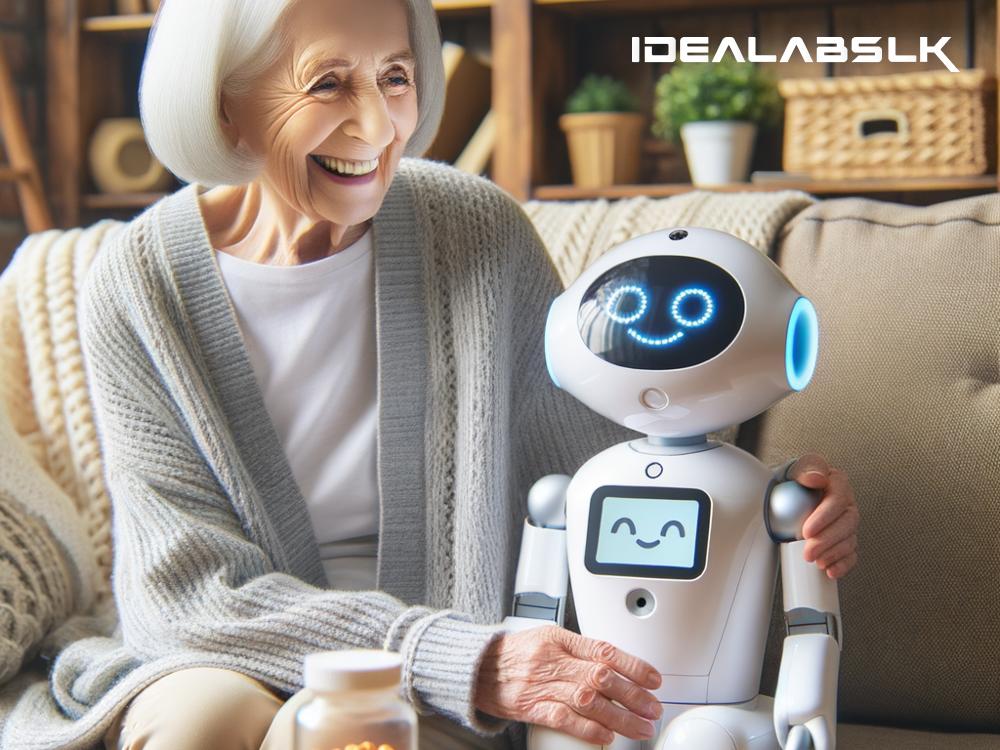How AI and Robotics are Improving Elderly Care: Innovative Solutions for Aging Populations
In a world where the number of elderly people is on the rise, taking care of our aging population has become a top priority. As we age, many of us might need help with daily tasks, health monitoring, or simply company to combat loneliness. This is where the magic of technology, particularly Artificial Intelligence (AI) and robotics, steps in to lend a hand. Let's dive into how these innovative solutions are making life better for our elderly friends and family members.
A Helping Hand from Robots
Imagine having a robot at home that can remind you to take your medicine, help you stand up, or even prepare a cup of tea for you. This might sound like a scene from a sci-fi movie, but it's quickly becoming a reality. Robotics in elderly care are providing physical assistance, ensuring safety, and even offering companionship.
1. Physical Assistance: Robots equipped with AI can help seniors with mobility challenges move around their homes safely. They can assist with lifting or provide support to those who struggle with standing up or walking. Some robots are also capable of performing household chores, making life easier and safer for the elderly.
2. Health Monitoring: Robotic devices can monitor health parameters like heart rate, blood pressure, and even remind individuals to take their medications on time. This not only helps in keeping a close eye on the health of the elderly but also provides peace of mind to their families.
3. Companionship: Loneliness can be a significant issue for elderly people. Robots, though not human, can offer companionship, interact through simple conversation, play games, or read stories, making the daily lives of seniors more pleasant and less isolated.
AI: A Backbone for Personalized Care
Artificial Intelligence is like a smart assistant that learns and adapts. In elderly care, AI is used to understand the unique needs of each individual and provide personalized support.
1. Smart Homes: AI-powered smart homes can learn the daily routines of their elderly residents and adjust the environment accordingly. For example, smart lights can automatically adjust their brightness based on the time of day or activity happening in the room. AI can also detect unusual patterns that might indicate a fall or a medical emergency, alerting caregivers promptly.
2. Virtual Health Assistants: Imagine having a 24/7 health assistant who can answer health-related questions, remind you about doctor's appointments, or even provide health tips. AI-powered virtual assistants can do all this, ensuring that elderly individuals receive timely advice and reminders about their health.
3. Memory Aids and Socialization: AI can be used to help those suffering from memory loss by providing reminders of important dates, medication schedules, or even faces and names of family members. Furthermore, AI-powered platforms can connect elderly individuals with similar interests, fostering new friendships and social interactions.
Making a Difference in Lives
The integration of AI and robotics into elderly care is revolutionizing the way we think about aging. These technologies are not just about providing physical assistances or health monitoring; they are about enhancing the quality of life for the elderly. They offer independence, safety, and companionship, and keep them connected with their loved ones and the world around them.
While there are concerns about privacy and the need for regulation to ensure these technologies are used ethically, the potential benefits cannot be ignored. We are stepping into an era where elderly individuals can enjoy their golden years with dignity, supported by the best that technology has to offer.
The Road Ahead
As we look to the future, the possibilities are endless. We can expect to see more personalized robots tailored to the specific needs of individuals, advanced AI systems capable of predicting health issues before they arise, and even smarter homes that adapt seamlessly to the needs of their elderly residents.
In conclusion, AI and robotics are bringing a positive change to elderly care, offering innovative solutions to improve the lives of aging populations. By combining the power of technology with compassion and care, we can ensure that our elderly loved ones lead happy, healthy, and independent lives. The future of elderly care looks bright, and it's exciting to think about what innovations the next few years will bring.

